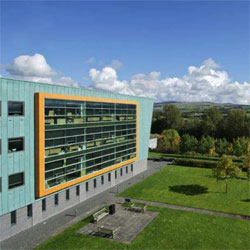Recent Stories
- Businesses urged to tap into science and technology young talent
- Digital relay baton enables remote crowd cheering of athletes
- Health Innovation Campus moves a step closer
- £7.1 million R&D boost for North West businesses
- Centre of excellence created for the next industrial revolution
- Artificial intelligence toolkit spots new child sexual abuse media online
- Strategic partnership set to help plug cyber security skills gap
- What your choice of smartphone says about you
- InfoLabTree: Discover the Story
- novi.digital Launch Event - 'An Event to Help Businesses Grow Online'
RSS Feeds
RSS feeds can deliver the latest InfoLab21 news and events direct to your browser without you having to visit the website.
In most browsers you can click on an RSS link and choose to subscribe to the feed to add it to your favourites or bookmarks.
Lancaster Plays a Part in £9.1m Autonomous Systems Research
Story supplied by LU Press Office
 Work at Lancaster will be led by researchers in the School of Computing and Communications
Work at Lancaster will be led by researchers in the School of Computing and Communications
Lancaster University is one of the partners on a £9.1m project investigating new technologies to replace humans in mundane, dangerous, dirty, or detailed and precise tasks.
Called 'autonomous systems', these technologies are in demand across sectors including aerospace, nuclear, automotive and petrochemicals.
The Growing Autonomous Mission Management Applications (GAMMA) is a three year £9.1m, Autonomous Systems programme aimed at driving small and medium sized business engagement and developing technology within the emerging autonomous systems markets.
GAMMA is funded by £4.42m from the Regional Growth Fund and £4.6m of in kind contribution from the aforementioned delivery partners.
The GAMMA programme partners are: North West Aerospace Alliance (NWAA), BAE Systems and the Universities of Manchester, Lancaster, Salford, Central Lancashire, Liverpool and the National Nuclear Laboratories. Lancashire County Council (LCC) and BIS are also supporting the Programme.
The programme will primarily concentrate on the end users of Autonomous Systems, and will assure that both the North West region and the wider UK are in a strong position to capitalise on the developing market.
Lancaster's role in the project will be to provide technological "know how" in autonomous processing of dynamically evolving multi-modal data streams from video, electro-optical and other sensors aiming detecting anomalies, objects, tracking them, saving bandwidth in data link and making decisions. This project is led by the School of Computing and Communications' Dr Plamen Angelov and involves Professor Garik Markarian as a co-investigator and Dr Pouria Sadeghi as Research Associate.
Mon 03 December 2012



